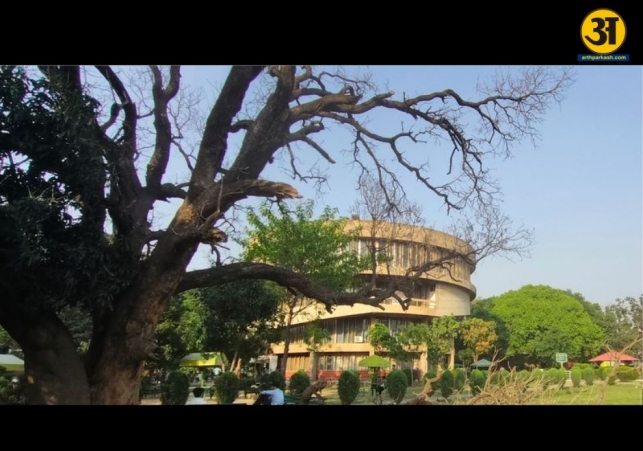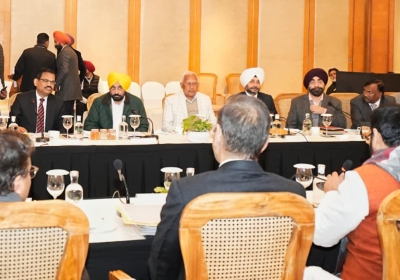
Chandigarh: online affiliation system to speed up process, says PU
PU says online affiliation system to speed up process
Panjab University (PU), Chandigarh, has taken a big step toward improving how colleges get affiliation. On Tuesday, the university launched an online affiliation management system using the SAMARTH portal, which is a platform supported by the Union Ministry of Education. This system will make the process of college affiliation easier, faster, and more transparent.
Affiliation is the process by which a college becomes officially connected to a university, allowing it to run approved courses and conduct exams. Until now, this process involved a lot of paperwork, multiple inspections, and long delays. But the new online system is expected to change all that.
According to university officials, the SAMARTH portal has been customised to suit PU’s specific needs. The portal will help colleges upload important data related to their courses, infrastructure, staff, and student numbers directly to the system. It will also allow PU’s Dean College Development Council (DCDC) office to review this data more quickly and clearly.
PU’s Vice-Chancellor Renu Vig said this online move is more than just a change in process. She believes it shows the university’s commitment to bigger changes in the education system. “This digitally enabled system sets a precedent for broader academic reforms,” she said.
DCDC Sanjay Kaushik, who has played a key role in launching the new system, said that it would bring clarity to the whole process and cut down delays. He explained that earlier there were many complaints about unethical practices during physical inspections. These issues had also been discussed in the Senate meetings of the university.
Better inspections, less confusion
Now, instead of sending large teams to inspect colleges physically, most routine inspections will be conducted online. Colleges will need to upload their documents, photos, and other proof of facilities through the portal. Only those colleges which are starting new courses will have to go through a physical inspection — and even those will be shifted to the online mode starting next year.
When a physical check is really needed, the team will be smaller than before. It will include just two members: one chosen by the vice-chancellor and the other by the DCDC. This is a major change from the earlier practice, where larger teams were sent out, leading to high costs and misuse of time.
This step is expected to save money and reduce effort for both the university and the colleges. It will also make the process less biased, as everything will be recorded and visible online.
A committee was formed to make sure the new system is implemented properly. The committee was headed by Prof Rajat Sandhir from the Department of Biochemistry. To make sure the system works smoothly, it was first tested at one government college and one private college in Chandigarh. After the successful trial runs, it was officially launched.
According to PU officials, the new system will help in maintaining proper records, increase accountability, and prevent delay in sharing information between colleges and the university.
Big numbers and expectations
Panjab University currently has 202 affiliated colleges in Punjab and 24 in Chandigarh. These colleges run various undergraduate and postgraduate courses. Every year, many of them apply for extension of affiliation, new courses, or other permissions. Until now, this process was slow and often led to confusion.
By bringing everything online, the university hopes to speed up approvals, remove manual errors, and improve communication between the university and its affiliated colleges. College principals and managements will be able to track their applications online and see where they stand.
University officials have also said that this system is not just for now, but for the long-term future. It can be upgraded and improved as needed. In fact, similar digital systems may be introduced for other university processes in the future, such as student admissions, staff appointments, and examination handling.
In the past, many college principals and staff had raised concerns about the old affiliation system. They said the process was not clear, took too much time, and allowed unfair practices. Some even said that inspections were influenced by personal relations or pressure from outside.
By shifting the system online, the university has made it easier for colleges to be judged on facts rather than opinions. The uploaded documents will be stored securely and can be referred to at any time. This also means that any false claims made by colleges can be caught easily.
It’s also important for students. When colleges are properly affiliated and monitored, it ensures that they offer quality education and follow proper rules. It helps protect students’ futures.
ALSO READ: Panjab University shooting range upgraded with Olympic-level electronic scoring system
ALSO READ: Congress praises army action during Mauli Jagran rally in Chandigarh
Voices from the ground
Many college teachers and administrators welcomed the move. A college principal from Ludhiana said, “It’s a much-needed step. Every year we had to wait for weeks or even months to get a reply from PU. Now everything will be clear and quick.”
Another faculty member from a college in Mohali said, “We had to prepare for days just for inspection visits. Sometimes, the inspection teams would cancel last minute or ask for things that were not needed. This online system will save our time and focus more on actual teaching.”
Students also expressed hope that the new system will bring better control over private colleges that don’t maintain proper facilities. A student from a Chandigarh college said, “Some colleges are just running for money. If PU monitors them properly, students like us won’t be cheated.”
This new system is part of the larger Digital India mission, which aims to bring more services online. In recent years, the government has encouraged schools, colleges, and universities to go digital in everything from admissions to teaching.
The SAMARTH portal, under which this system is developed, is already being used by other universities in India. It allows for different services like finance, human resource management, admissions, examination control, and now, affiliation.
By using such platforms, universities can reduce paperwork, make decision-making faster, and cut down misuse of power or funds. It also helps in creating a national-level education data system, which is one of the goals of the new National Education Policy (NEP).
PU officials said they will keep reviewing how well the new system is working. Feedback from colleges will be taken seriously and improvements will be made wherever needed. The university also plans to offer training to college staff so that they can use the portal smoothly.
From next year, even more parts of the affiliation process — including course syllabus submissions, student data updates, and infrastructure reports — may be done through the same system.
For now, the university is proud to take this important step. It believes that this move will lead to cleaner, quicker, and smarter decisions, not just in Chandigarh and Punjab, but across the Indian higher education system.
As DCDC Kaushik put it, “This is not just a change in technology; it is a change in culture.”





